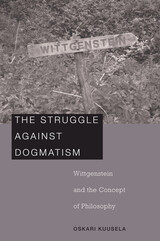
This is the first study of Mendoza, the importance of whose position as Ambassador to France from 1584 to 1591--crucial in the liaison between Philip II and the French Catholic League--was long recognized but not explored. A religious zealot and military crusader who carried his uncompromising attitude into his diplomatic career, Mendoza made the connections between his master Philip and the French Catholic League much more intimate and functional than was previously suspected. In the spring of 1588, for instance, Mendozamanipulated the League and the Duke of Guise into a position of open rebellion against the King of France, thus ensuring that the Armada could sail for England without the danger of French harassment along the channel coast, and also that there would be no threat of French occupation of the Spanish Netherlands when Parma's troops should embark for the invasion of England.
Throughout the book, Spanish policies and techniques and their influence on international affairs are exemplified as they were not before. Showing how Continental diplomacy was dominated by religious zeal in the late sixteenth century, and how the fanaticism of the French religious wars formed a prelude to a reaction toward political absolutism, Jensen draws on a fund of untapped manuscript and printed sources, including Mendoza's coded letters, some of which he was the first to decipher.

Searching for rigor and a clear grasp of the essential features of their objects of investigation, philosophers are often driven to exaggerations and harmful simplifications. According to Ludwig Wittgenstein’s provocative suggestion, this has to do with confusions relating to the status of philosophical statements. The Struggle against Dogmatism elucidates his view that there are no theses, doctrines, or theories in philosophy. Even when this claim is taken seriously, explanations of what it means are problematic—typically involving a relapse to theses. This book makes Wittgenstein’s philosophical approach comprehensible by presenting it as a response to specific problems relating to the practice of philosophy, in particular the problem of dogmatism.
Although the focus of this book is on Wittgenstein’s later work, Oskari Kuusela also discusses Wittgenstein’s early philosophy as expressed in the Tractatus, as well as the relation between his early and later work. In the light of this account of Wittgenstein’s critique of his early thought, Kuusela is able to render concrete what Wittgenstein means by philosophizing without theses or theories. In his later philosophy, Kuusela argues, Wittgenstein establishes a non-metaphysical (though not anti-metaphysical) approach to philosophy without philosophical hierarchies. This method leads to an increase in the flexibility of philosophical thought without a loss in rigor.
READERS
Browse our collection.
PUBLISHERS
See BiblioVault's publisher services.
STUDENT SERVICES
Files for college accessibility offices.
UChicago Accessibility Resources
home | accessibility | search | about | contact us
BiblioVault ® 2001 - 2024
The University of Chicago Press









